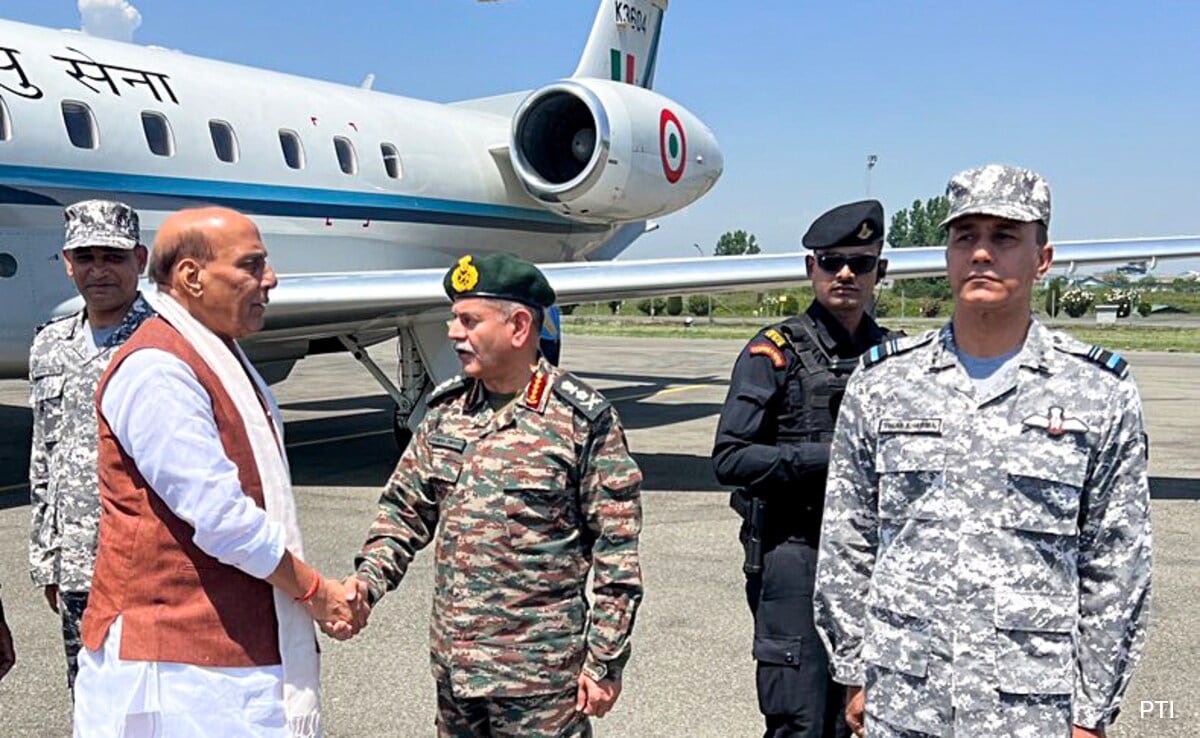Ceasefire Between India and Pakistan Leads to Major Political and Security Decisions
In the wake of escalating tensions between India and Pakistan, the Indian government has taken decisive steps, including revoking the security clearance of a Turkish firm involved in airport operations. This development signals a critical intersection of international relations, national security, and ongoing military conflict. The announcement came amidst a series of high-profile statements from Indian officials on the safety of nuclear arms in Pakistan and a push for international oversight.
Who, What, Where, When, Why, and How, Explained
The Union Government of India, under the direction of Defence Minister Rajnath Singh, has revoked the security clearance of Celebi Aviation, a Turkish company responsible for critical operations at various Indian airports. This decision follows the culmination of a tense military operation dubbed Operation Sindoor, launched on May 7, which targeted terrorist bases in Pakistan and Pakistan-Occupied Kashmir (PoK) in direct response to a terrorist attack in Pahalgam that claimed the lives of 26 individuals, primarily tourists. The operation has heightened diplomatic tensions, as India strives to respond firmly to cross-border terrorism while navigating the complexities of international relations.
Singh’s comments, made during his first visit to Jammu and Kashmir since the operation, questioned the safety of Pakistan’s nuclear arsenal within the hands of what he termed an “irresponsible and rogue nation.” He advocates for international supervision of Pakistan’s nuclear weapons by the International Atomic Energy Agency (IAEA) as a safeguard against potential misuse. This urgency underscores the geopolitical stakes involved in the region and reflects India’s robust stance on national security.
Meanwhile, Union Civil Aviation Minister K. Ram Mohan Naidu emphasized the government’s commitment to restoring tourism in Kashmir, which has been adversely impacted by the recent conflict. The government is working to reassure both domestic and international travelers that safety measures are in place.
On May 10, as part of an attempt to de-escalate the situation, India and Pakistan reached an agreement to cease all military actions from 5 p.m. However, Pakistan’s immediate violation of this agreement has raised alarms and prompted additional security measures within India.
International and Local Reactions
India’s critical stance against Turkey stems from Ankara’s vocal support of Pakistan amid ongoing tensions. The cancellation of Celebi Aviation’s security clearance marks a significant diplomatic repercussion, as this Turkish firm has played a vital role in airport operations across India. The diplomatic row has intensified discussions around foreign investment and operational oversight within sensitive national infrastructure.
The response has also resonated on social media, where Indian citizens have expressed strong sentiments against Turkey, threatening a boycott of travel to the country. This backlash comes on the heels of accusations that Turkey has provided military assistance to Pakistan in the form of drones, further complicating bilateral relations.
As per the report by NDTV, the broader implications of these tensions are felt not only in military strategies but in economic discussions as well. External Affairs Minister S. Jaishankar reiterated that discussions with Pakistan would be strictly limited to counter-terrorism efforts and firmly rejected any claims of U.S. mediation regarding the ceasefire agreement—a point that the Indian government has addressed in a six-point rebuttal to statements made by U.S. President Donald Trump and officials regarding the nature of India-Pakistan relations.
Ceasefire Dynamics and Human Impact
As the bilateral tensions simmer down, life is gradually returning to normal in border villages of Punjab’s Ferozepur district. Villagers, who had fled their homes during the recent spike in conflict, are beginning to return, with many expressing relief at the cessation of hostilities. Local resident Malkeet Singh described the return to normalcy, noting how the fear that had gripped the community is now lifting.
Yet, Pakistan’s plea to India to reconsider the suspension of the Indus Waters Treaty reveals the broader humanitarian issues intertwined with the conflict. With a significant portion of Pakistan relying on these water resources for agriculture and drinking needs, the treaty’s suspension has serious implications, further complicating diplomatic relations.
Operation Sindoor: A Retrospective
Operation Sindoor, intended as a decisive response to terrorism emanating from Pakistan, has left a lasting impact on India-Pakistan relations. The operation has been framed as not only a military success but also a signal to terrorist organizations operating within the region. As remarked by Jammu and Kashmir Lieutenant Governor Manoj Sinha, the nation takes pride in its armed forces for their swift and strategic response.
Amid the higher stakes of this conflict, the relevant authorities are dealing with the immediate repercussions and long-term implications on national security and international standing. Underlying these developments are calls for greater accountability and a reevaluation of how nuclear powers manage their arsenals, especially in regions fraught with tension.
Building Bridges or Barriers?
It remains to be seen how India will navigate these turbulent waters in the coming days. The international community, particularly nations invested in peace in South Asia, will be watching closely. The outcomes of the latest developments may set a precedent for future engagements or further entrench borders drawn by decades of discord.
As these events unfold, the dialogue surrounding national security, bilateral ties, and international diplomacy will remain crucial, shaping not only the immediate landscape but also the future stability of the region.
DISCLAIMER
We have taken every measure to ensure that the information in this article and on our social media platforms is accurate, verified, and obtained from reliable sources. For feedback or complaints, please contact us at info@hamslive.com.


